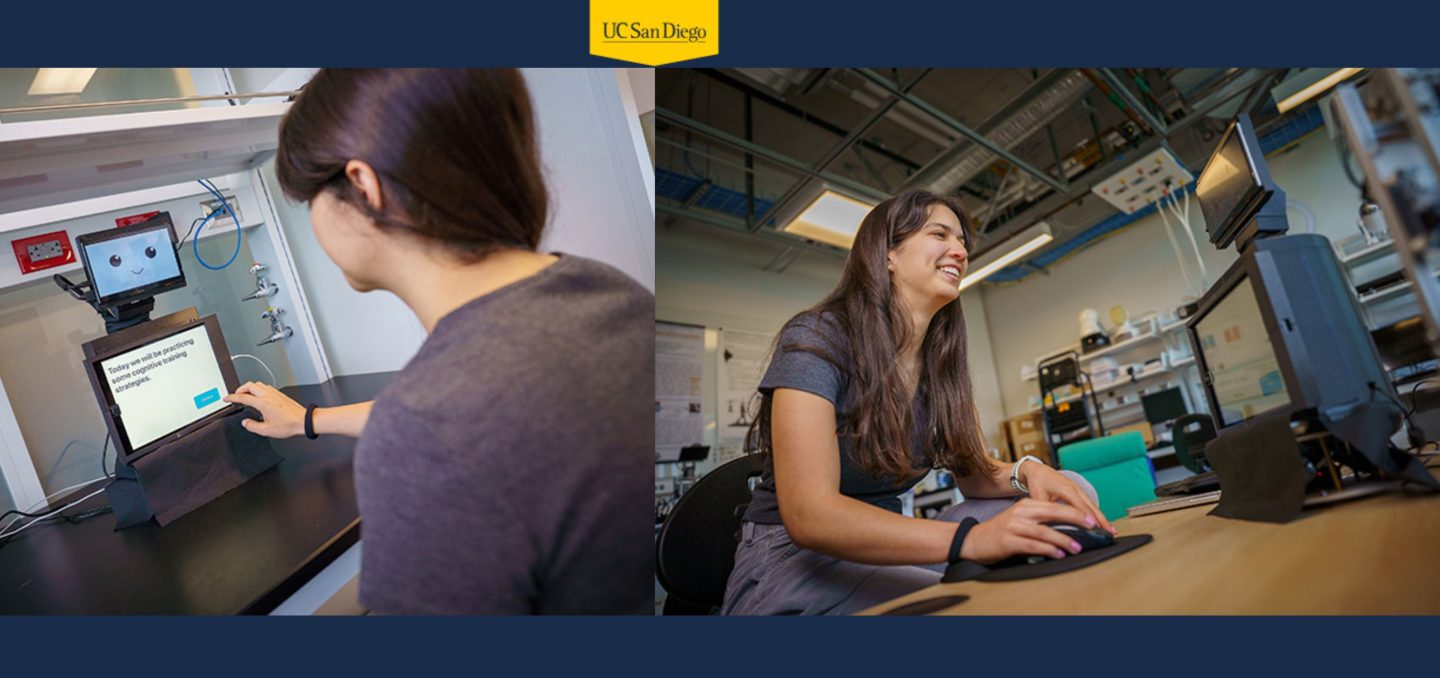The University of California, San Diego, has made a significant stride in healthcare technology. Researchers Anya Bouzida and Alyssa Kubota have unveiled CARMEN, an innovative Cognitively Assistive Robot designed to enhance motivation and support neurorehabilitation.
CARMEN: what is it?
CARMEN is a tabletop robot developed to assist individuals with mild cognitive impairment (MCI) and aims at improving memory, attention, and executive functioning. Unlike other robots, CARMEN focuses on teaching compensatory cognitive strategies.
MCI is a stage between typical aging and dementia, and it affects many cognitive domains. While pharmacological treatments haven’t shown significant outcomes, behavioral treatments can be beneficial. The researchers programmed CARMEN to deliver simple cognitive training exercises, such as creating routine places to keep important items or using note-taking techniques. Through interactive games and activities, CARMEN engages users to practice these skills.
CARMEN was designed to be used autonomously without supervision from clinicians or researchers. It is plug-and-play, has minimal moving parts requiring maintenance, functions offline, communicates effectively, and provides breaks to keep the engagement high.
Participants with MCI used CARMEN to complete a number of tasks during a week-long deployment in their own homes, and reported increased confidence in utilizing cognitive strategies in their daily lives. Most found the activities easy to understand and wanted to interact more with the robot.
In the future, the researchers plan to install CARMEN in more homes and improve its ability to have conversations with users while ensuring privacy. They’d also explore how CARMEN can assist individuals with other conditions, such as ADHD.
A new era for Neurorehabilitation
Recent global events, such as the COVID-19 pandemic, have accelerated the shift from in-person medical treatments to home-based solutions. This has highlighted the potential of robots as a medium for delivering health interventions. CARMEN is a prime example of this trend, offering a flexible robot system designed to extend the reach of clinical interventions to the home.
We found that CARMEN gave participants confidence to use cognitive strategies in their everyday lives, and participants saw opportunities for CARMEN to exhibit greater levels of autonomy or be used for other applications,” the researchers write.
Personalized Care for Cognitive Impairment
CARMEN was specifically designed to assist people with mild cognitive impairment (PwMCI). And because of its flexibility, it allows for rapid and accurate implementation of intervention content in line with existing clinical practices. This flexibility is crucial given the wide range of cognitive abilities and rehabilitation goals among PwMCI.
Collaborative Development
The development of CARMEN was a collaborative effort involving key stakeholders: clinicians and PwMCI. This collaboration ensured that the system was designed with the needs of its end-users in mind.
Real-World Impact
CARMEN was deployed in the homes of stakeholders to evaluate its effectiveness and gather initial feedback. The results were promising, with participants reporting increased confidence in using cognitive strategies in their everyday lives. They also saw potential for CARMEN to exhibit greater levels of autonomy and be used for other applications.
Open Source for Greater Accessibility
The project utilized the FLEXI robot as a starting point but underwent significant hardware modifications and developed all the software from scratch. The robot’s operating system is based on ROS (Robot Operating System).
Elements of CARMEN are open source, supporting the development of flexible home-deployed robots. This move towards open source will enable the HRI community to deploy quality interventions on robots, increasing their accessibility and extensibility.
In conclusion, CARMEN represents a significant step forward in the field of home-based neurorehabilitation. Its personalized, flexible approach to cognitive training, combined with its open-source elements, make it a game-changer in healthcare robotics.



